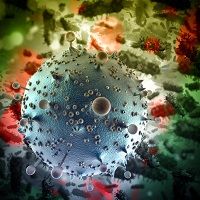Article
Genetics May Explain Some Anti-HIV Treatment Failures
Author(s):
When a drug treatment does not work as expected, it may be suspected that the patient did not take the prescription properly. However, a new study suggests that genetics may be to blame for some cases of disappointing medication performance in patients with HIV.

When a drug treatment does not work as expected, it may be suspected that the patient did not take the prescription properly. However, a new study suggests that genetics may be to blame for some cases of disappointing medication performance in patients with HIV.
Tenofovir, known as Viread and also a component in the drug Truvada, is commonly used with other antiviral medications in order to slow the progression of the human immunodeficiency virus (HIV). Lead author Namandie Bumpus, PhD, and colleagues from Johns Hopkins University School of Medicine discovered that cell location is a pivotal factor in the processing of tenofovir.
Previous research indicated that the human enzymes that activate tenofovir to fight HIV are the work of the 2 molecules known as phosphate groups. Using healthy participants, the team aimed to find the particular enzymes responsible for the process. When they exposed tissues cells to the drug, the enzyme that performs the second activation step differed for blood and vaginal tissues (pyruvate kinase) and colorectal tissues (creatine kinase).
“We detected genetic variants in these kinases predicted to have deleterious and damaging phenotypes, demonstrating that there could be a genetic basis for inter-individual variation in [tenofovir] drug levels,” the authors wrote in EBioMedicine.
The researchers went one step further by examining the genes of 142 healthy females who had went through a tenofovir clinical trial. A total of 71 variants were discovered in functions of pyruvate kinase, creatine kinase, or the enzyme responsible for the first step of the cells adenylate kinase 2. A computer model revealed that a percentage of those variants would cause the enzyme to be ineffective. The data showed that 8% of the participants had genetic variations which would not allow tenofovir to activate.
“If confirmed by further studies, our results suggest that in the future, before prescribing tenofovir to a patient, a doctor could order genetic testing and know in advance if it works, and prescribe a different drug if it won’t,” Bumpus said in a news release.
The team is in the process of creating a clinical trial to verify these findings.





